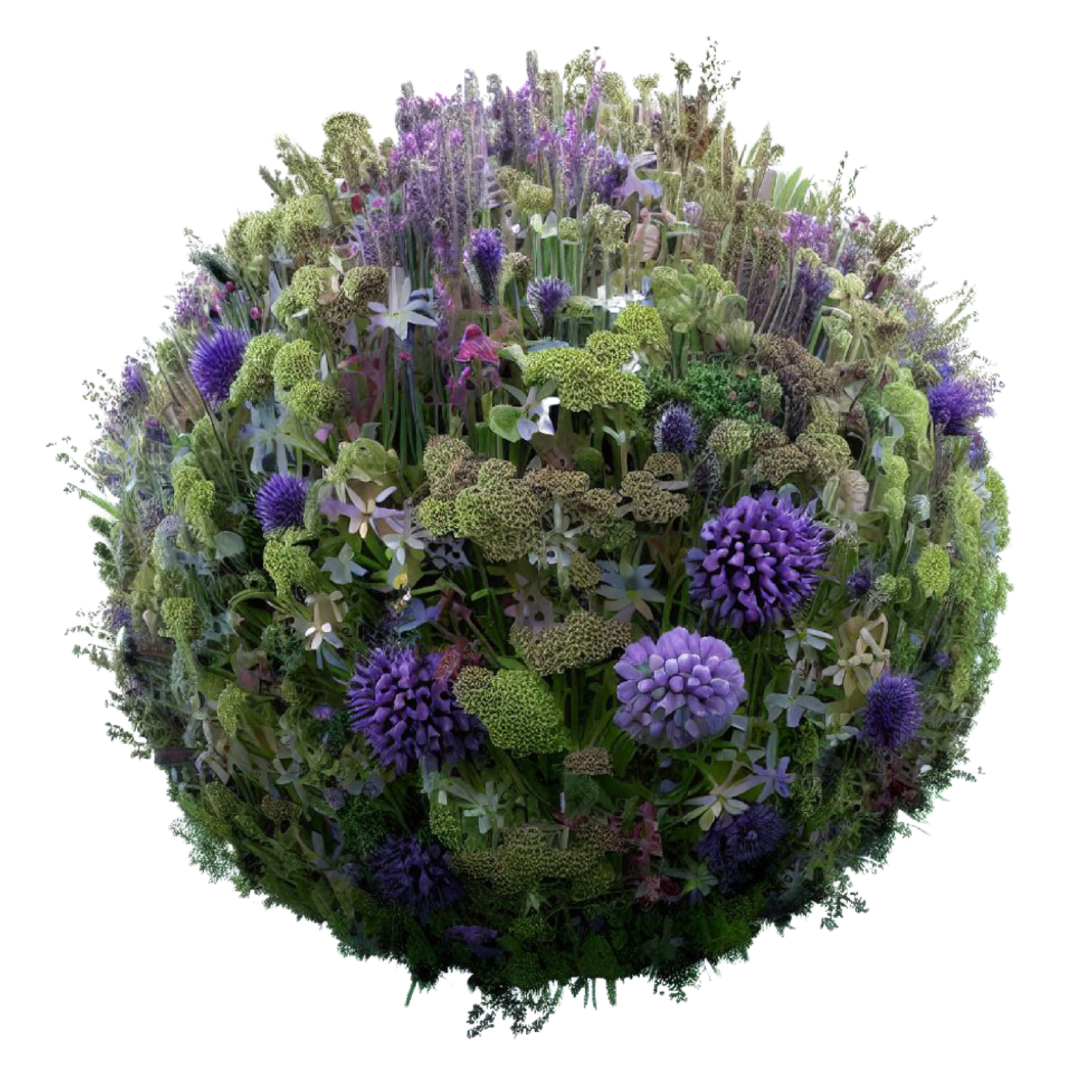
We organised the very first Wilding Weekend in June 2022, at our home in West Dorset. It was also the first garden opened through the National Garden Scheme (NGS) that was included primarily for its ‘wilding’ rather than for beautiful borders, impeccably mown lawns and other attributes of more traditional gardens.
The next Wilding Weekend is on 17th and 18th June, 2023.
When we bought Hooke Farm, 10 years ago, I still embraced some of the less wildlife-friendly practices that I shun today. For example, I happily employed a mole catcher, trapped wasps and put down slug pellets. Now the focus of pretty well everything we do is to encourage wildlife in whatever shape or form.
Why is this so important? Because there has been a massive decline in almost all types of animals, insects, birds and reptiles – as well as plants and fungi. And, so many of the things we’re doing in our gardens contribute to this problem.

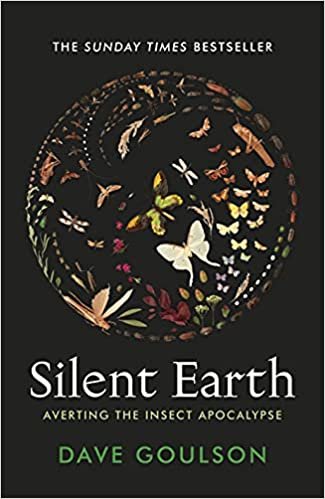
The statistics on insect decline, for example, are harsh. In Dave Goulson’s book, ‘Silent Earth – Averting The Insect Apocalypse’ he sums it up poignantly:
“Every year there have been fewer butterflies, fewer bumblebees – fewer of almost all the myriad of little beasts that make the world go round. These fascinating and beautiful creatures are disappearing, ant by ant, bee by bee, day by day. “
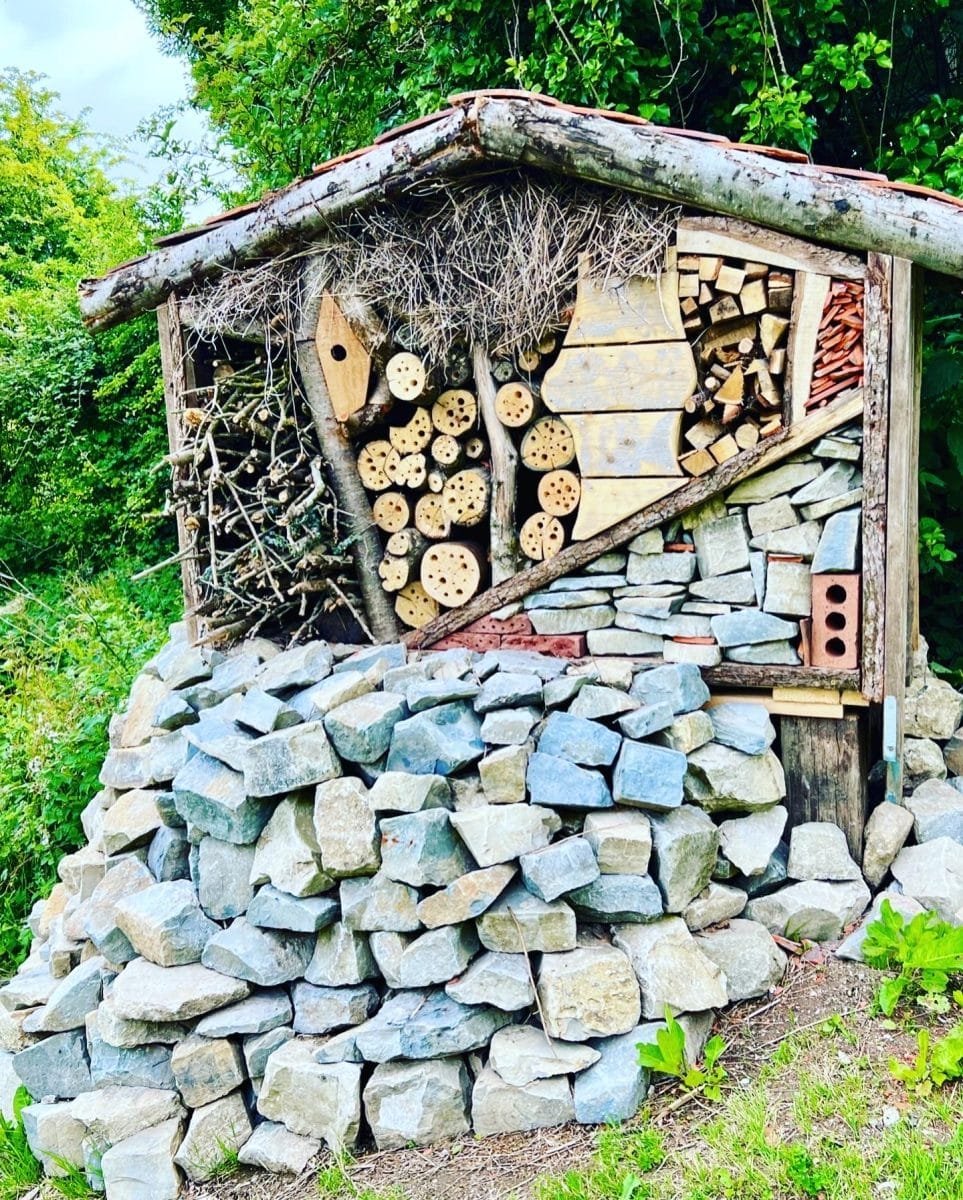
Rather than poisoning and trapping insects, we’ve been embracing them by building insect mounds – we’ve even constructed a very deluxe-looking insect hotel. On the warm summer evenings in 2022 we could see and hear swathes of creatures buzzing or humming over our grasslands. Birds too seemed to like what we’ve been doing as flocks of linnets and goldfinch swoop over our wildflower meadow and numerous birds of prey have found mice, voles and other rodents nestling in our un-mown grass. These include Kestrel, Sparrowhawks, Common Buzzard, Red Kite, Peregrine Falcon, Hobby and even a White Tailed Eagle!
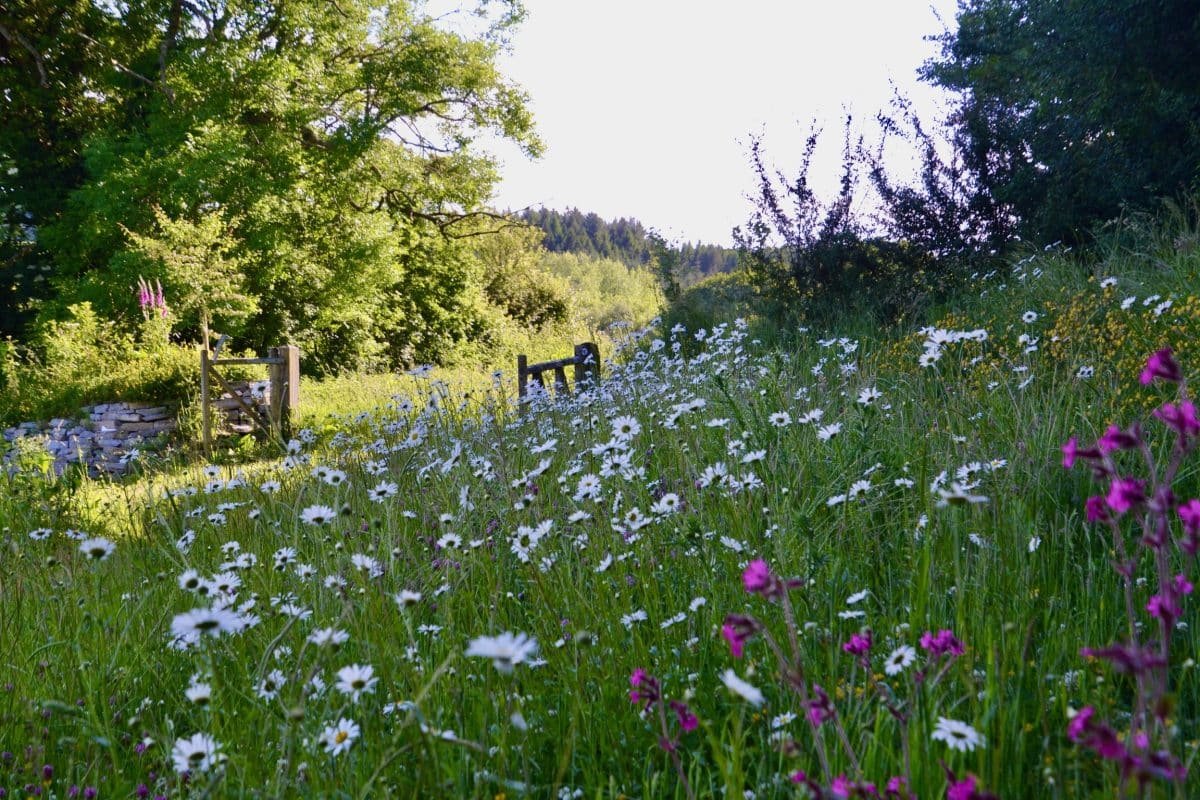
Actually, managing grassland has been one of the most radical parts of our wilding project. Previously we had a big area of lawn that needed regular mowing. Now, we have mown paths through the long grass and most of it is only cut a couple of times a year – with some being left without any mowing at all.
The brilliant thing about this is the meadow plants that have appeared and even many different types of grass, as well as Corky-fruited Water dropwort – what a great name!

One of the most wonderful things we’ve done is create a giant ‘bat egg’. The dry stone construction, built by local stone carver, Tom Clark, is 10 feet high and includes a state-of-the-art two-story bat cave inside. According to Steve Masters from the Dorset Wildlife Trust (DWT), bats like to go into a warmer upper chamber in the summer months and hibernate lower down in the winter. The exciting thing is that Steve has been back to investigate any signs of bats – and found some droppings. Although the greater or lesser horseshoe bats have not taken up full-time residence yet, it seems that they’ve at least taken a look. And, we’re hoping that some of the smaller bat species like the pipistrelle might make their home in the crevices.
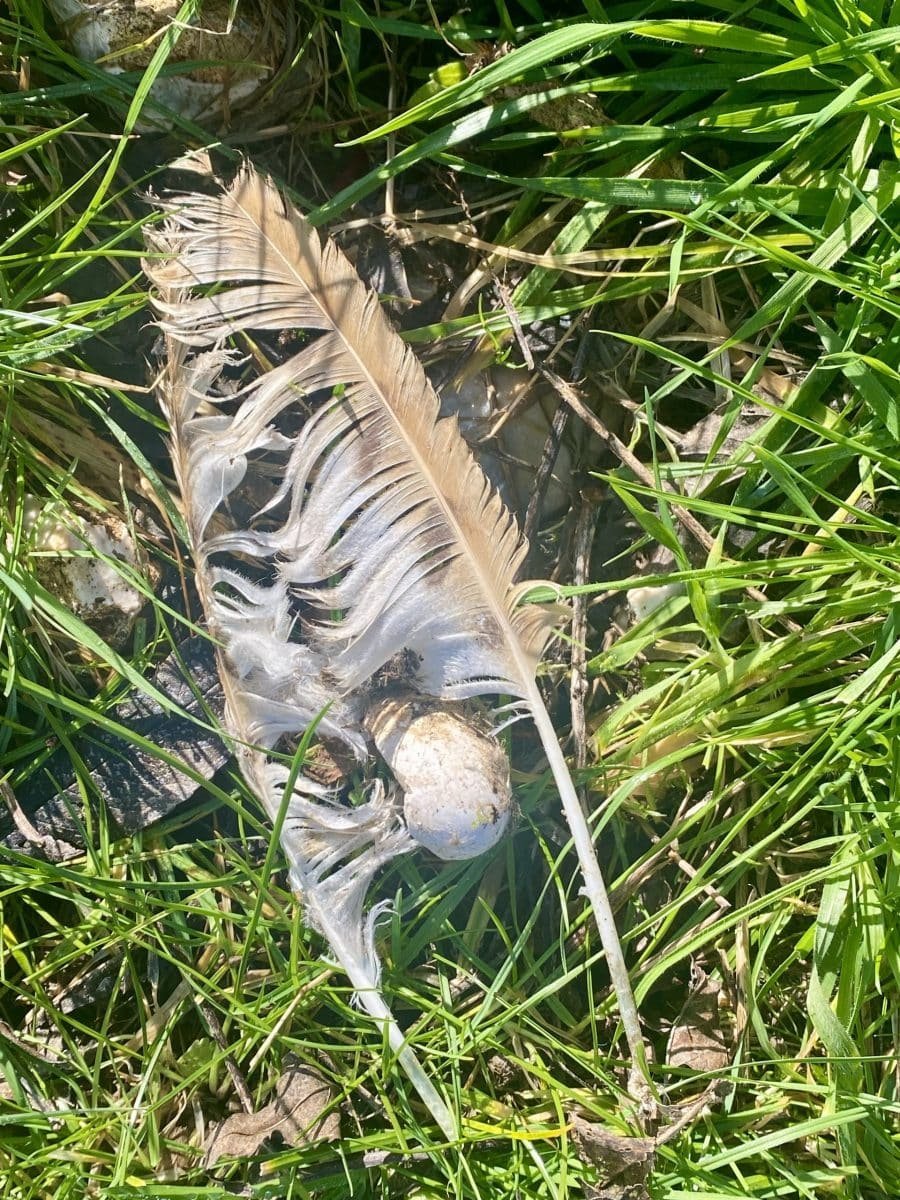
Our first barn owl box has been even more successful. We took it down in the spring because we thought it might need to be higher up in the tree – and discovered it was full of nesting materials, droppings, a barn owl feather, and an old egg.
Of course, our wilding initiative has involved buying plants and seeds. Our priority has been to choose insect-loving British plants, wherever possible. During our first Wilding Weekend, one of the stalls was hosted by Bee Happy Plants and Seeds – a wonderful company based near Chard, in Somerset. Sarah Holdsworth who runs it is a fount of knowledge. She explained to our visitors why they should be wary of modern cultivars, instead planting wild, native or naturalised species which benefit pollinators and can adapt to climate change.
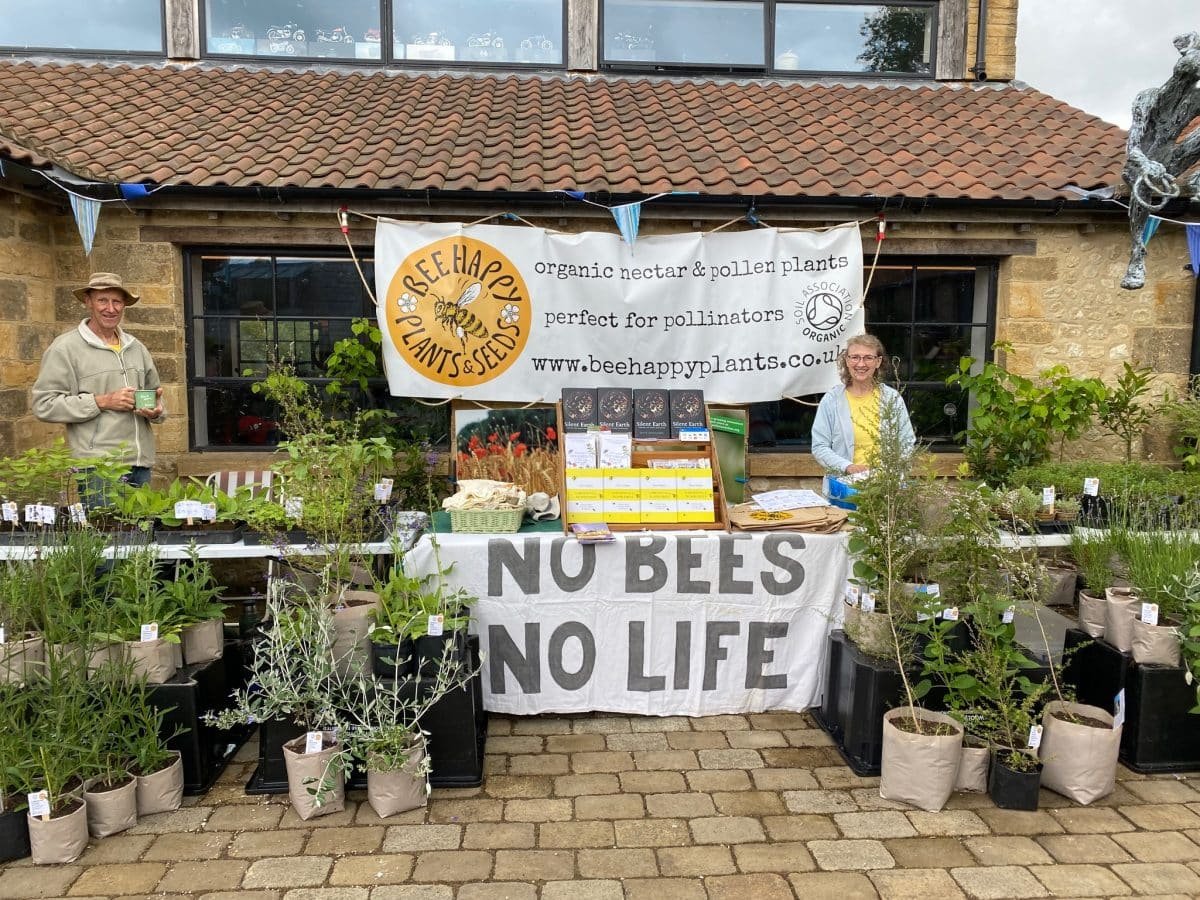
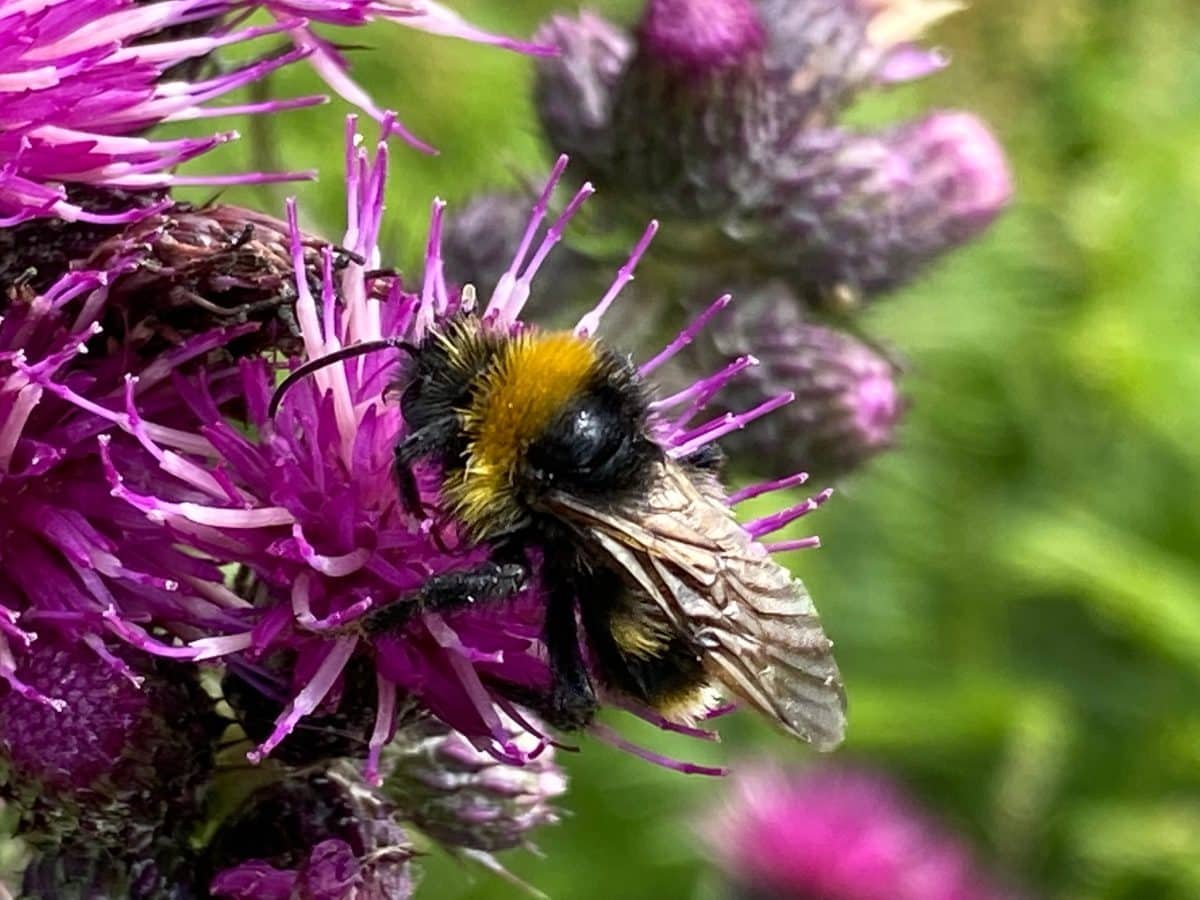
The concern is that plant breeders have focused so much on producing showy plants or ones without the traits we don’t like that they’ve made them useless for pollinators. No bees will visit your double-bloomed roses or new-breed salvia. And plant breeders have been tinkering around with Hawthornes too – avoid Pauls Scarlet Hawthorne, which has double flowers but no berries. Just to be clear she did point out that old heritage plant varieties are bee-friendly.

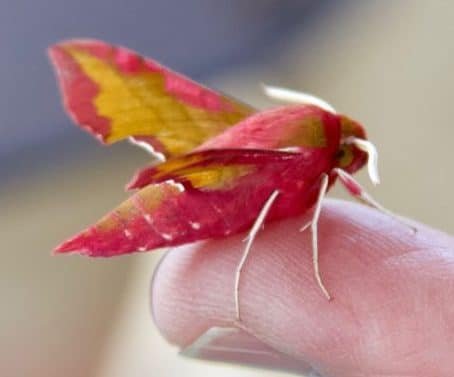
The Bumblebee Conservation Trust also participated in our Wilding Weekend – taking tours to show people the different types of bees that could be found here. Luckily we had a sunny day and there was plenty to see. Their stall was next to Butterfly Conservation which had lots of moths for people to look at – they had been trapped the night before.
This year, we’re offering a moth and bat tour in the evening during the Wilding Weekend on Saturday 17th June, 2023 (Further details to come)
Another significant issue when buying plants is the use of peat – 1.7 million cubic meters are used by gardeners and commercial growers in the UK (Sizzle, 2022) Digging up peat and destroying peat bogs is equivalent to the destruction of the rainforests and it’s happening on our doorstep. The bogs themselves are a thriving habitat for many unique species, they help alleviate flooding and act as water filtration plants. But perhaps most importantly, peatlands are essential in our fight against climate change as they are incredibly effective at carbon sequestration.
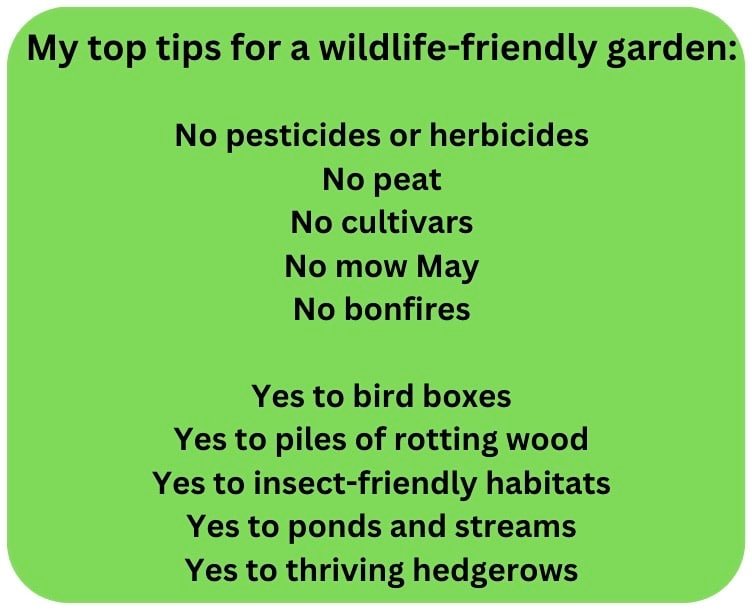
There’s a new organisation called Sizzle, which is highlighting this issue and working hard to find viable peat alternatives. It’s an important battle and one that we can all participate in. Make sure you’re not buying peat in any shape or form and challenge garden centres to stop selling it, not just as compost but in potting plants too.
At this year’s Wilding Weekend, we’ll be talking about all these issues and many others. We’d love you to come and join us to find out more, to enjoy what we’ve done and hopefully to have some delicious lunch and cakes which will be on offer too.
The second Wilding Weekend will be on the 17th and 18th of June, 2023 at Hooke Farm, DT8 3NZ. Find out more on this website – www.juliahailes.com or through the National Garden Scheme.

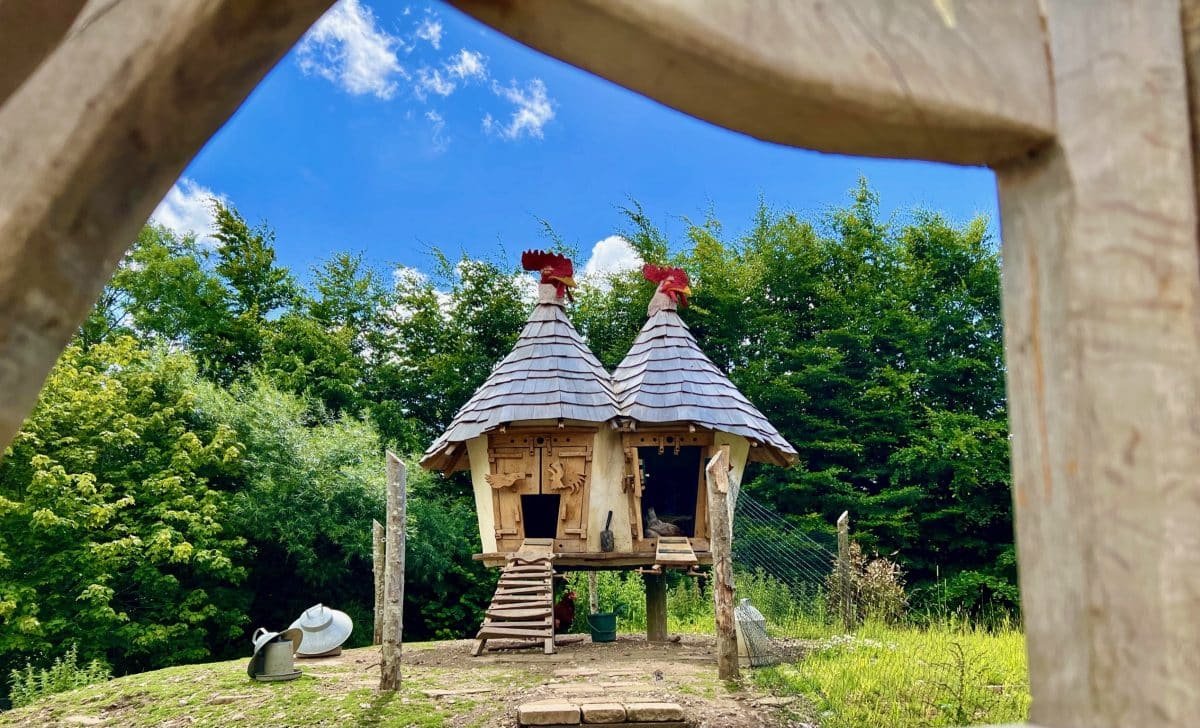
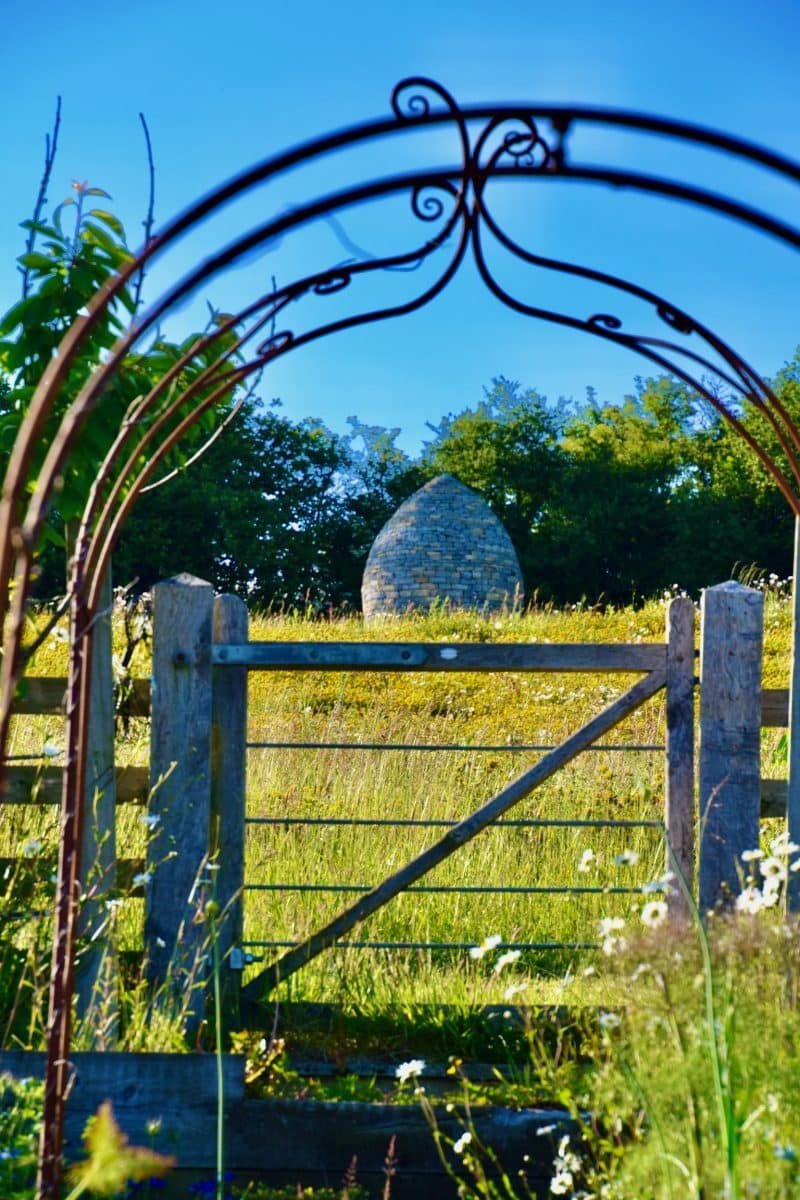
Here’s a short video covering our Wilding Weekend 2022.

